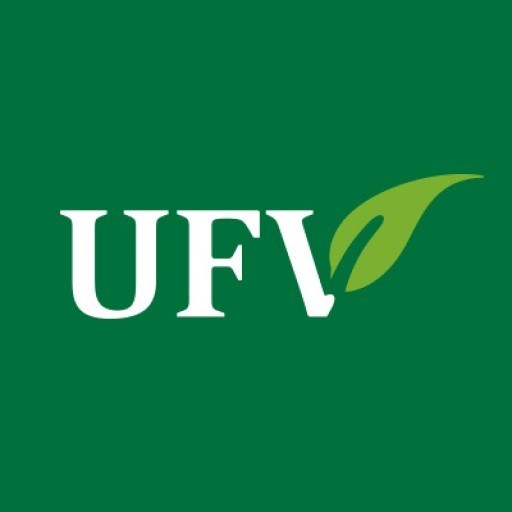Photos of university / #goufv
The Bachelor of Science in Biology at the University of the Fraser Valley offers students a comprehensive and in-depth understanding of the living world. This program is designed to provide a solid foundation in biological sciences, equipping students with the knowledge and skills necessary for careers in research, healthcare, environmental management, education, and other related fields. Students will explore various aspects of biology, including cell biology, genetics, ecology, evolution, physiology, and microbiology, through both theoretical coursework and practical laboratory experiences. The program emphasizes critical thinking, scientific inquiry, and hands-on learning, preparing graduates to analyze complex biological problems and contribute to scientific advancement. Throughout their studies, students will have opportunities to engage in research projects, internships, and fieldwork, allowing them to apply their learning in real-world settings. The curriculum is designed to be flexible, with options for specialization in areas such as ecology, molecular biology, or biomedical sciences. Faculty members are experienced researchers and educators committed to fostering a collaborative learning environment. Graduates of the program will be well-equipped to pursue further education, such as graduate studies or professional programs, or to enter the workforce in diverse biological sectors. The University of the Fraser Valley's Biology program emphasizes student-centered learning, community engagement, and the development of skills that are highly valued in today's evolving scientific landscape. Whether students are interested in exploring the complexities of life or making meaningful contributions to environmental and health initiatives, this program provides a strong foundation to achieve their academic and professional goals.
The Bachelor of Science in Biology at the University of the Fraser Valley offers students a comprehensive overview of the fundamental principles of life sciences, combining theoretical knowledge with practical experience. This undergraduate program is designed to prepare students for careers in research, healthcare, environmental management, education, and other fields related to biological sciences. Throughout the program, students will explore diverse areas such as cell biology, ecology, genetics, microbiology, physiology, and evolution, gaining a thorough understanding of the living world.
Students enrolled in this program will have opportunities to participate in hands-on laboratory work, field studies, and research projects to develop essential skills in scientific inquiry, data analysis, and problem-solving. The curriculum emphasizes critical thinking and experimental techniques, ensuring graduates are well-equipped for professional roles or to pursue advanced studies. Courses are structured to build from foundational sciences in the early years, progressing to specialized and advanced topics in later semesters, allowing students to tailor their education according to their interests and career ambitions.
In addition to core biological courses, the program includes complementary subjects such as chemistry, mathematics, and computer science, which further enhance analytical capabilities. The program also emphasizes the importance of environmental sustainability and ethical considerations in biological research and applications. Students are encouraged to engage in internship opportunities, cooperative education placements, and research collaborations with faculty members, providing real-world experience and professional networking opportunities.
The faculty at UFV bring a wealth of expertise in various biological disciplines, fostering a vibrant learning environment that promotes inquiry and innovation. Graduates of the Biology program are prepared to pursue careers in research institutions, healthcare settings, conservation organizations, and educational institutions. They may also choose to continue their education through graduate or professional programs to further specialize in fields such as medicine, biotechnology, or environmental science.
Overall, the Bachelor of Science in Biology at UFV is a rigorous and engaging program that equips students with the knowledge, skills, and experiences necessary to succeed in dynamic and evolving biological fields. With its combination of classroom learning, practical training, and research opportunities, this program provides a strong foundation for a lifetime of contribution to science and society.
The Bachelor of Science in Biology at the University of the Fraser Valley requires students to complete a comprehensive curriculum that provides a solid foundation in biological sciences along with opportunities for specialization. The program typically includes a combination of core courses, electives, and laboratory components designed to develop practical skills and theoretical knowledge. Core courses generally encompass principles of biology, cell biology, genetics, ecology, evolution, and physiology, ensuring students gain a broad understanding of living organisms and their interactions with the environment.
Students must also engage in laboratory and fieldwork components that promote experiential learning and research skills, preparing graduates for careers in research, healthcare, conservation, and education. Elective courses allow students to explore specialized areas such as microbiology, plant biology, zoology, or biotechnology, facilitating tailored academic pathways aligned with individual interests and career goals.
Program prerequisites typically include introductory courses in biology and chemistry, ensuring students are prepared for advanced topics. To graduate, students are often required to complete a minimum number of credits in both core and elective courses, maintain a satisfactory GPA, and sometimes undertake a capstone project or thesis under faculty supervision. The program emphasizes the development of critical thinking, analytical, and communication skills vital for professional success in biological sciences.
Throughout the program, students are encouraged to participate in internships, co-op placements, or undergraduate research opportunities that provide real-world experience and industry contacts. The curriculum is designed to be flexible, accommodating transfer students and part-time learners, with options to specialize or diversify their studies. Overall, the Bachelor of Science in Biology aims to produce well-rounded graduates equipped with scientific knowledge, research abilities, and practical skills to excel in various biological fields or pursue advanced education.
Want to improve your English level for admission?
Prepare for the program requirements with English Online by the British Council.
- ✔️ Flexible study schedule
- ✔️ Experienced teachers
- ✔️ Certificate upon completion
📘 Recommended for students with an IELTS level of 6.0 or below.
Funding options for the Bachelor of Science in Biology program at the University of the Fraser Valley include a variety of scholarships, bursaries, and financial aid opportunities designed to support students throughout their academic journey. Prospective and current students are encouraged to explore UFV’s Scholarship and Bursary Opportunities webpage, which provides detailed information on available financial support sources. Scholarships are awarded based on academic achievement, leadership qualities, community involvement, and specific criteria relevant to the student's background or area of interest in biology. For example, students demonstrating excellence in science coursework or engaged in extracurricular activities related to biology or environmental sciences may be eligible for targeted awards.
Bursaries at UFV are typically need-based and aim to assist students who require financial assistance to pursue their studies. Students are advised to complete the UFV Scholarship & Bursary application form, available online, to be considered for these awards. Additionally, students can seek external scholarships from organizations, government programs, and community foundations that support students in science disciplines. These external awards often require separate applications, essays, or interviews, and students should check eligibility criteria carefully.
The government of Canada and the Province of British Columbia also provide funding opportunities such as student loans and grants, which students can access through the StudentAid BC and Canada Student Loans programs. To qualify, students must submit the appropriate financial aid application forms and meet specific eligibility requirements, including demonstrating financial need and enrollment in a recognized post-secondary program.
Work-integrated learning opportunities, such as research assistantships, teaching assistant positions, and internships, may also provide partial financial compensation while gaining practical experience in biology. UFV encourages students to connect with faculty members and the university’s Career Centre to identify available positions and application procedures.
International students enrolling in the Bachelor of Science in Biology should explore additional funding options, including international student scholarships and bursaries offered by UFV, which are highly competitive and require separate applications. They are also encouraged to seek external funding sources available in their home countries or through international organizations supporting international students in Canada.
Financial planning for students studying biology includes considering tuition fees, which vary depending on residency status and course load, as well as living expenses. UFV provides a comprehensive tuition fee schedule on its website, along with guidance on payment deadlines and installment options. Students are advised to start their financial aid applications early to maximize funding opportunities and ensure timely support throughout their studies.
In summary, UFV offers a range of financial support mechanisms, including scholarships, bursaries, government aid, work opportunities, and external funding sources, all designed to assist students in financing their Bachelor of Science in Biology degree. Prospective students are encouraged to regularly review UFV’s official financial aid webpage and contact the university’s financial aid office for personalized guidance and updates on available funding.
The Bachelor of Science in Biology at the University of the Fraser Valley is a comprehensive undergraduate program designed to provide students with a solid foundation in the fundamental principles of biological sciences. The program encompasses a wide range of courses that cover various aspects of biology, including cellular and molecular biology, genetics, ecology, evolution, physiology, and microbiology. Students gain hands-on laboratory experience, fieldwork opportunities, and an understanding of the scientific method, preparing them for careers in research, healthcare, environmental management, education, and other related fields.
The program is structured to support both general education and specialization, allowing students to tailor their educational experience according to their interests and career goals. Core courses are complemented by electives in areas such as conservation biology, biotechnology, animal behavior, and plant biology. The curriculum emphasizes critical thinking, data analysis, and scientific communication, which are essential skills for success in biological sciences.
Students enrolled in the program have access to state-of-the-art laboratories, modern equipment, and experienced faculty members who are active researchers in their fields. The university encourages experiential learning, including research projects, internships, and collaborative initiatives with local environmental organizations and research institutes. These opportunities aim to enhance practical skills and professional readiness.
Graduates of the Biology program are well-prepared for further education, including graduate and professional studies, or immediate entry into the workforce. They possess a comprehensive understanding of biological concepts, laboratory techniques, and environmental issues, making them competitive candidates for roles in environmental consulting, healthcare, conservation agencies, and education. The University of the Fraser Valley’s supportive academic community, combined with its focus on applied learning and community engagement, ensures that students develop both academically and personally during their studies.



